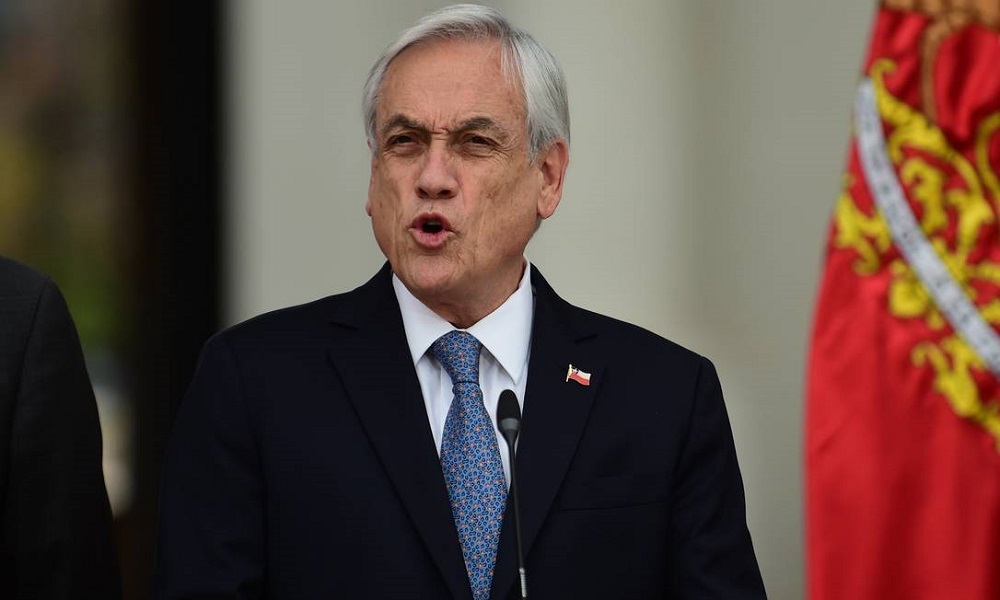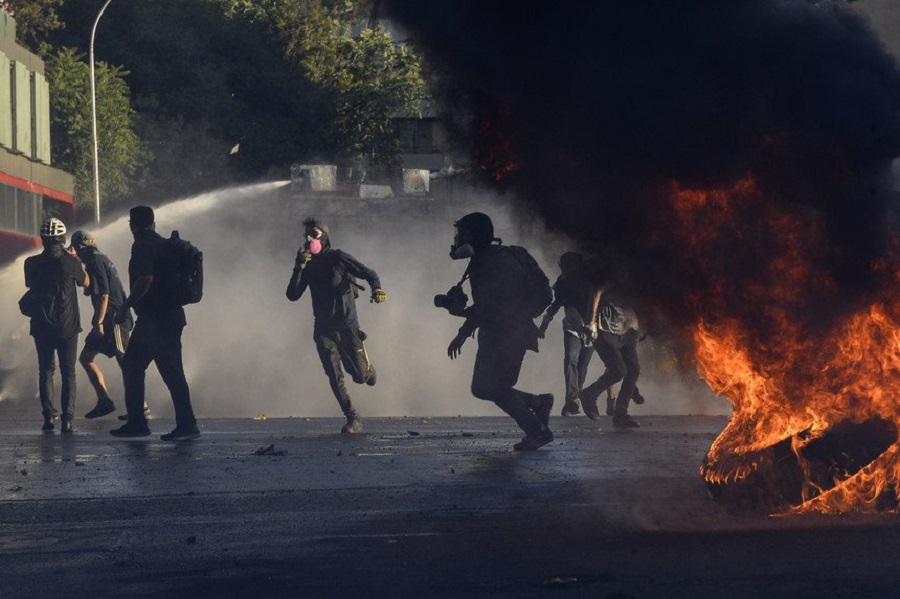RIO DE JANEIRO, BRAZIL – The Chilean Chamber of Deputies unanimously passed a bill on Wednesday, November 27th to reduce by 50 percent the gross monthly salary of senators, deputies, ministers, governors and the president. The measure has yet to be ratified by the Senate.
Chile has been the target of popular demonstrations for more than a month. One of the main sources of outrage against the political class stemmed from the high salaries of legislators.

If passed, the law must be enacted within 60 days, when a special committee will be set up to oversee the final salaries of all officials. The salaries of the judiciary and mayors will also be reduced, but the percentage will be defined by the technical committee overseeing the matter.
A new night of clashes
During Tuesday night and the early hours of Wednesday, a hundred “serious events” were recorded in several cities across the country, such as fires and attacks on buses, subway stations, newspaper offices and a traditional hotel in La Serena (north), which led President Sebastián Piñera to caution that “in many places public order was breached,” according to the government.
“The violence is inflicting irreparable damage,” the president added in a statement at the government palace, in which he called on Congress to pass laws to increase penalties for disorderly conduct, then announced that as of next Monday, 2,500 new police officers will be included in the control operation.
The new night of rage countered the president’s attempt to push forward a plan to “rebuild” the country, plunged since October 18th into the worst social crisis since the return to democracy in 1990.
No social measure – such as a 50 percent increase in the basic retirement pension for all beneficiaries within two years – nor the historic political agreement to change the Constitution inherited from Augusto Pinochet’s dictatorship (1973-1990) has succeeded in lowering the tension in the country, where 23 dead, thousands injured and massive damage to trade, historical heritage, and public buildings have been reported since the protests began.
“The time has come to say enough; the government is doing its job with all the tools available in a democracy,” Piñera alerted.

Vandalism on the rise
After 40 days of protests, vandalism gained new momentum. In the city of La Serena, some 480 km from Santiago, hooded men looted and burned the traditional Costa Real hotel. In the port city of San Antonio, in the region of Valparaíso, new disorderly events are taking place. The headquarters of the local newspaper El Mercúrio de Valparaíso, the longest-running newspaper in the country, has been set on fire.
Further south, in Concepción, a major demonstration – held amid a two-day strike called by Chile’s main union (CUT) – culminated in incidents between the hooded crowd and the police. In Santiago, two subway stations were again devastated, resulting in disruption to the metropolitan railway network, the first target of the beginning of the riots, with more than 70 stations damaged.
Early in the day, the “No + Tag” movement – which demands a reduction in toll fees and amnesty for users’ debts – again took over the main access roads in Santiago. Meanwhile, the truckers’ union alerted that if the Powers of the State “cannot guarantee basic rights, such as free circulation, democracy will effectively cease to exist”.
The truckers’ union gained prominence in the 1973 democratic collapse, encouraging a strike that hindered the government of socialist Salvador Allende, who was overthrown that same year by Pinochet.
Police challenged and exhausted
On a mission to uphold public order, the Carabineros (the Chilean police) are drifting between the inquiries of international organizations that alert to “serious” violations of human rights and the exhaustion caused by more than forty days of strenuous days on the streets.
“The acts of violence that the Carabineros are suffering, the clashes with this crowd of very violent people we have never seen before, make the action complex, added to the tiredness and exhaustion that the troops feel”, said Julio Santelices, spokesman for the corporation.
Four of the 23 deaths in the protests are pointed out as having been caused by the military – who patrolled the streets for nine days at the onset of the crisis -, and one as being caused by a member of the Carabineros. Thousands of people were injured in these clashes, including some 300 with eye injuries caused by fragments of rubber bullets fired by the security forces.

On Sunday, Piñera announced that the Carabineros will be led by policemen from France and other European countries, but on Wednesday the French said they would not cooperate. A policing restructuring “requires a transversal political agreement that allows deep changes in the short and long term, the Carabineros cannot have a next day without major changes in their structure,” said Lucia Dammert, professor at the University of Santiago.
Coming into a new stage of the crisis, the markets reacted by depreciating the peso, with the dollar reaching a historic high, trading at 812 pesos.
Source: Veja

